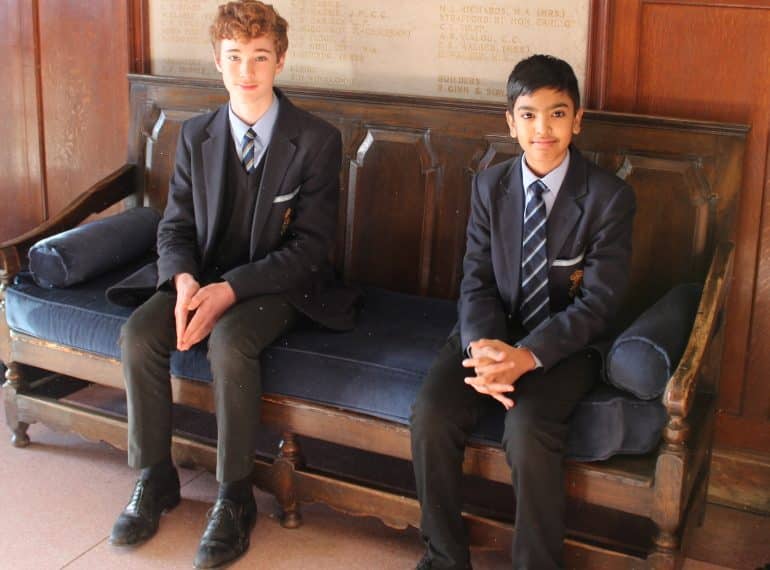
Linguists from every year took part in a new QE competition named after a well-known literary translator.
In the Anthea Bell Translation Competition, the Languages department invited pupils to translate a poem from either French or German into English. A separate list of winners was announced for both languages.
Anthea Bell, who died in 2018, translated works including Franz Kafka’s The Castle, but is best known for translating the Asterix comic books from French.
Through the competition, the Languages department aimed to develop boys’ sensitivity towards language and to think about the role of a translator. Teachers also encouraged boys to reflect on the importance of poetry in our everyday lives and to consider the themes covered in the poems. Boys in Years 8 & 9 were, for example, given poems to translate which dealt with racial inequality, thus sparking consideration of news topics such as the Black L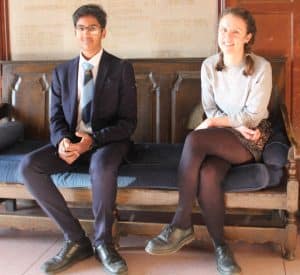 ives Matter movement.
ives Matter movement.
Languages teacher Katrin Hood, pictured last term with Year 12 German winner, Siddhant Kansal, said: “It has been fantastic to see how brilliantly the boys have engaged with the resources provided. We have had fascinating conversations in class about how to translate rhyme, how to choose the right word when you have many different ones available, and how to conserve the overall effect of a poem.
“The boys’ competition entries were of an incredibly high standard and they should be very proud of their outstanding work.”
The competition materials were supplied by The Queen’s College, Oxford, which this term plans to invite up to 50 schools to take part in a new national competition named after Anthea Bell.
The year group challenges, and the respective winners, were as follows:
- Year 7 French – making shape poems inspired by the work of Guillaume Apollinaire. Winner: Jeevan Karthick Thiyagarajan
- Year 7 German – making shape poems inspired by the work of Reinhard Döhl. Winner: Nayan Santheepan
- Year 8 & 9 French – translating Marc Alexandre Oho Bambe’s Winners: Edward Muscat, Year 8; Hadi Al-Esia, Year 9
- Year 8 & 9 German – translating May Ayim’s Abschied. Winners: Tanush Gupta, Year 8; Chanakya Seetharam, Year 9
- Year 10 & 11 French – translating Paul Éluard’s Liberté. Winners: Darren Lee, Year 10; Theo Mama-Kahn, Year 11
- Year 10 & 11 German – translating Goethe’s Willkommen und Abschied. Winners: Arjun Patel, Year 10; Olly Salter, Year 11
- Sixth Form French – translating Loubaki’s France Amour. Winners: Zeke Essex, Year 13
- Sixth Form German – translating May Ayim’s deutschland im herbst. Winners: Siddhant Kansal, Year 12.
Year 8 German winner Tanush, who is pictured, top, with Year 8 French winner, Edward Muscat, said: “I really enjoyed the challenge of translating the poem, because at first, it appears to 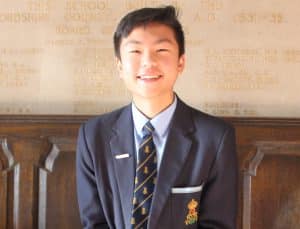 have jumbled-up words, but after rearranging them, the poem starts to make sense.
have jumbled-up words, but after rearranging them, the poem starts to make sense.
“The poem was very heart-touching and made me think more about how precious life is – which someone only finds out when they have very little time left.”
Darren, the Year 10 French winner, pictured left, added: “It was a fun and interesting experience that helped push me beyond the curriculum.”
Tanush and Darren’s translations are set out below, with Tanush’s first.
what should the last words be
farewell,
see you again
sometime, somewhere?
what should the last deed be
one last letter
a phone call
a quiet song?
what should the last wish be
forgive me
don’t forget me
I love you?
what should the last thought be
thank you?
thank you.
In the embroidered strings of gold,
In the war’s unbridled hold,
Engraved into king’s crown of old,
I shall write your name
In horizon’s tranquil plain,
And in the bird’s forbearing claim,
And in the mill’s dusky remains,
I shall write your name
And on the land’s beaten trails,
A network of sprawling scale,
And in the square of many tales,
I shall write your name
Etched into my untainted skin,
Written on my companions’ grin,
On every reaching hand with,
I shall write your name
While waves of health come rolling back,
While burning risk just fades to black,
His hopeful grin begins to crack,
I will write your name.

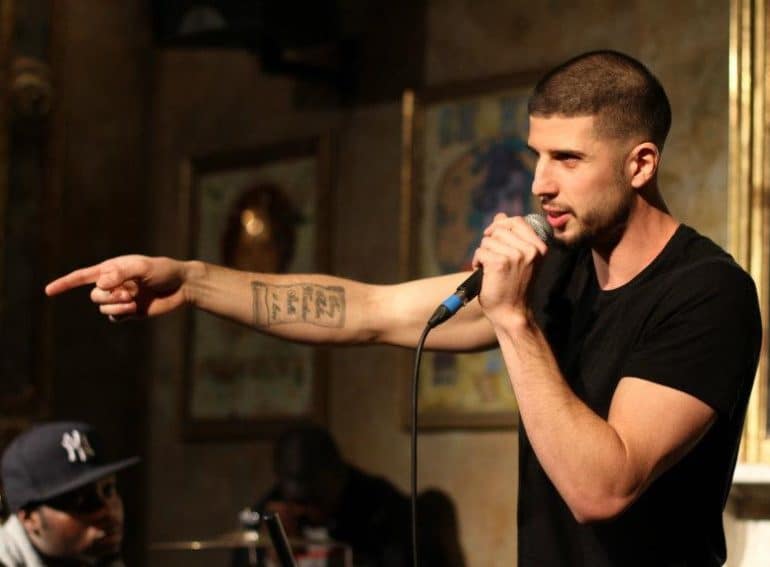
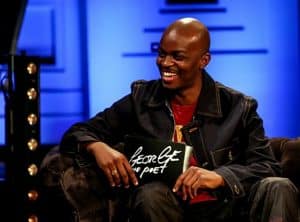 Anthony was quoted by the
Anthony was quoted by the 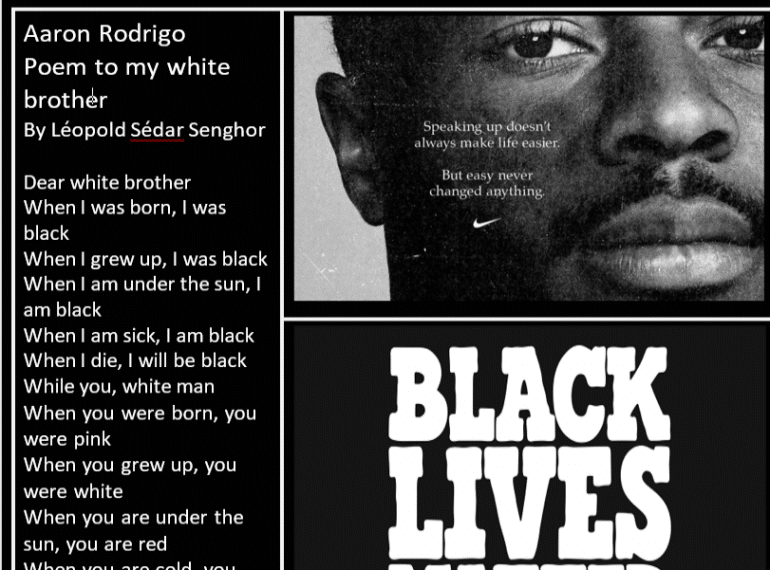
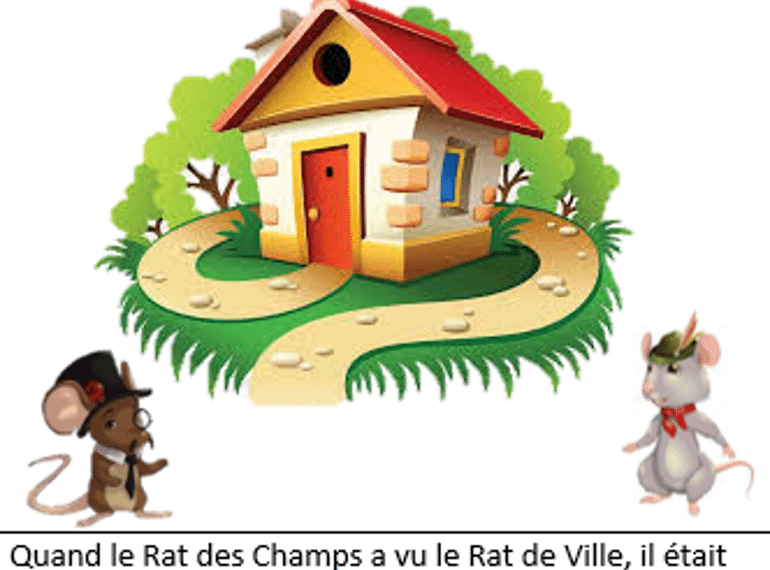
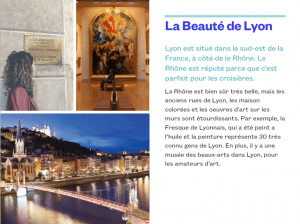 For both contests, boys had to show their mastery of written French or German, while a challenge set by Languages teacher Rosie Hall additionally gave Year 10 pupils the opportunity to display visual ability alongside their verbal skill.
For both contests, boys had to show their mastery of written French or German, while a challenge set by Languages teacher Rosie Hall additionally gave Year 10 pupils the opportunity to display visual ability alongside their verbal skill.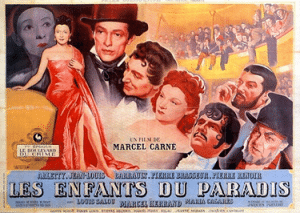 House points were awarded, with Pearce taking first place, followed by Broughton and then Underne.
House points were awarded, with Pearce taking first place, followed by Broughton and then Underne.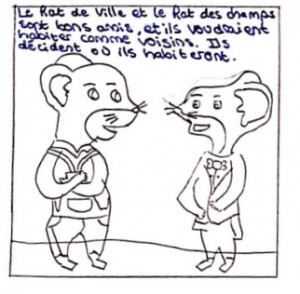 The boys watched some French cartoon clips and then were asked to create a comic strip or storyboard, re-imagining the story and using the vocabulary they learned to explain relative advantages and disadvantages of living in the town and the countryside.
The boys watched some French cartoon clips and then were asked to create a comic strip or storyboard, re-imagining the story and using the vocabulary they learned to explain relative advantages and disadvantages of living in the town and the countryside.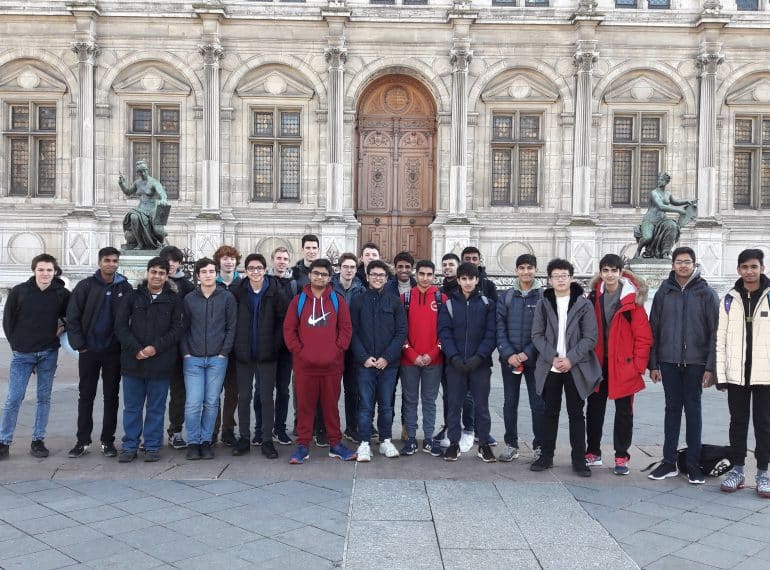
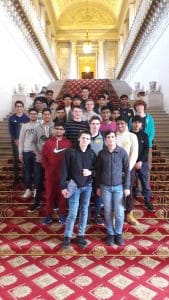 The Languages department runs a trip to the French capital every two years, ensuring that all boys can go to Paris at least once during their French A-level studies.
The Languages department runs a trip to the French capital every two years, ensuring that all boys can go to Paris at least once during their French A-level studies.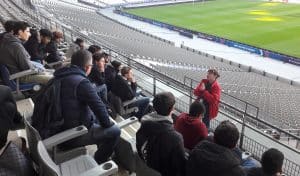 There was also a tour of the Stade de France, where the students were given access to the dressing rooms decorated for the Six Nations rugby tournament and enjoyed the opportunity to see strips belonging to several French football and rugby sporting heroes.
There was also a tour of the Stade de France, where the students were given access to the dressing rooms decorated for the Six Nations rugby tournament and enjoyed the opportunity to see strips belonging to several French football and rugby sporting heroes.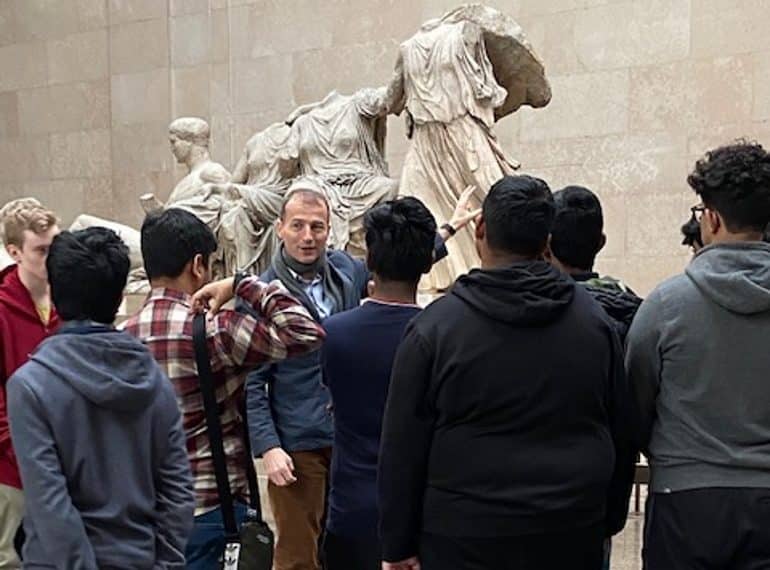
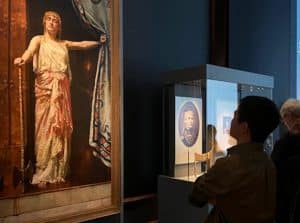 The 33 Year 11 boys taking Latin GCSE – the highest number since the subject was reintroduced at QE as a curriculum subject in 2012 – have been studying Troy as part of their set texts.
The 33 Year 11 boys taking Latin GCSE – the highest number since the subject was reintroduced at QE as a curriculum subject in 2012 – have been studying Troy as part of their set texts.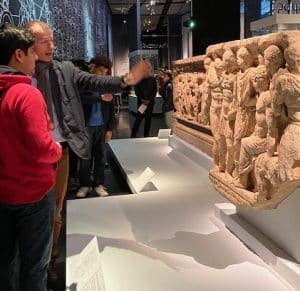 The exhibition, Troy: Myth and Reality, showcased art related to Troy and also examined the archaeological evidence demonstrating conclusively that the city actually existed.
The exhibition, Troy: Myth and Reality, showcased art related to Troy and also examined the archaeological evidence demonstrating conclusively that the city actually existed.